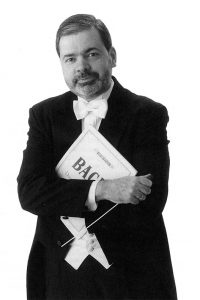In mid-1989, guitarist, keyboardist, and vocalist Bernard Sumner of New Order approached his bandmates with the idea of adding programmed synths to their new music. Neither Peter Hook, Stephen Morris, or Gillian Gilbert were particularly receptive to the idea, as they were all deeply involved in ongoing side projects at the time. Undeterred by their indifference, Sumner then reached out to guitarist Johnny Marr (formerly of the Smiths); they'd worked together on another recording a few years earlier. Their new collaboration quickly morphed into Nineties' supergroup Electronic, who proceeded to generate three outstanding albums over the course of the decade. Including 1991's Electronic (Factory Records), which sold a million copies worldwide; 1996's Raise The Pressure (Parlophone Records); and the band's final album, 1999's Twisted Tenderness (also on Parlophone). Rhino Entertainment has just reissued both Raise The Pressure and Twisted Tenderness on 180 gram double LP sets—Electronic was previously reissued in 2020, so this completes Rhino's survey of the band's catalog of albums. While no notification was ever given that Electronic had officially broken up, a quarter-century has passed since their last recording, so it's probably a foregone conclusion by now.
The catalogs of both New Order and the Smiths have been in frequent rotation in my house and car for decades, but I have to profess prior ignorance to the music of Electronic. A growing infatuation with classic jazz gripped much of my consciousness throughout the Nineties, and obviously clouded my awareness of Electronic's existence. Both Raise The Pressure and Twisted Tenderness were only offered in the US as compact discs in their original incarnations, although Raise The Pressure was also issued in the UK as a single LP. However, its lengthy run time exceeded sixty minutes, which crammed over thirty minutes of music onto each of the album sides. Rhino's new reissues address that problem by spreading their tracks evenly across double LPs, which greatly improves the groove geometry of each side during playback. Prior to Rhino's new LP release, Raise The Pressure had never been reissued on vinyl, and Twisted Tenderness is making its first appearance on LP. Original LP copies of Raise The Pressure are exceptionally rare and have become quite collectible, often selling for hundreds of dollars regardless of condition.
Both reissue packages were created by Optimal in Germany. Raise The Pressure arrived in a single pocket outer jacket that contained both LPs, which are housed in colorful printed inner sleeves. Twisted Tenderness features a gatefold jacket, but with only one functioning pocket that also holds both LPs—they were also inserted into graphically stylish printed inner sleeves. As is my usual practice with printed paper inner sleeves, I inserted rice paper liners to minimize issues with static and paper dust. Both albums were remastered by Frank Arkwright at Abbey Road Studios; Optimal's LPs were razor-flat and glossy, had pristine surfaces, and exhibited minimal groove noise during playback. Both Raise The Pressure and Twisted Tenderness are available at Rhino's web store HERE, and can also be found at a variety of online and brick and mortar locations, including your local independent record store.
Electronic, Raise The Pressure. (2) 180 Gram Parlophone LPs, $34.98
Electronic's first album featured performances from Pet Shop Boys Neil Tennant and Chris Lowe, which lent additional credence to the band's status as a supergroup. But five years passed before Bernard Sumner and Johnny Marr convened for their sophomore effort, Raise The Pressure. Tennant and Lowe were long gone, but Electronic was now joined in Manchester's Clear Studio by former Kraftwerk alum Karl Bartos, who also played keyboards, synths, and co-wrote about half the album's tracks. Bernard Sumner also provided keyboards and synths, while singing all the vocal leads; Johnny Marr played all guitars, bass, and additionally added keyboards and synths. Ged Lynch added drums and percussion, and Denise Johnson offered harmony vocals. The recordings took place between 1994 and early 1996, and were engineered by James Spencer; Bernard Sumner and Johnny Marr produced Raise The Pressure, which was released in July 1996.
Raise The Pressure was greeted with mixed response from the critics, but still managed to reach the top ten on the UK Billboard album charts. It didn't fare as well worldwide, failing to meet the impressive sales numbers of the debut. Among the trio of singles, "Forbidden City" and "For You" broke into the UK top twenty, but "Second Nature" barely dented the top forty. No singles were released in the US market, and the album didn't get much traction on the album charts. The front cover features an idyllic and strikingly beautiful color illustration of a child picking flowers by Johannes Handschin, with brightly colored inner sleeves—it's a gorgeous album package.
Track List:
Side A
- Forbidden city
- For you
- Dark angel
- One day
Side B
- Until the end of time
- Second nature
- If you've got love
Side C
- Out of my league
- Interlude
- Freefall
Side D
- Visit me
- How long
- Time can tell
Electronic, Twisted Tenderness. (2) 180 Gram Parlophone LPs, $34.98
Electronic's sessions for Twisted Tenderness found Bernard Sumner and Johnny Marr still the only official members of the band, with the pair determined to quicken their pace in producing the new album. Sumner and Marr both played guitar this go-around (Marr took the leads); the rhythm section featured Jimi Goodwin's bass and Ged Lynch on drums and percussion, while Astrid Williamson provided backing vocals. A bevy of keyboard players and synth programmers joined them, including NYC club deejay Arthur Baker, Merv de Peyer, and Mac Quayle. Scratches, beats, and effects were provided by Arthur Baker, Jason Mad Doctor X, and Fridge. The 1998 sessions predominantly took place again at Manchester's Clear Studios, with additional work happening at London's RAK Studios and Real World Studios, with all mixing taking place at Mayfair Studios. Twisted Tenderness was engineered by James Spencer and Darren Allison, and was produced by Electronic and Arthur Baker. The album was released in April 1999.
Twisted Tenderness was also met with muted critical response, but nonetheless peaked at number nine on the UK Billboard album charts; it failed to chart in the US. The pair of singles released included "Vivid" and "Late At Night," though their remake of Blind Faith's "Can't Find My Way Home" is a definite highlight. The album art features a cool monochromatic image of Russian mystic Grigori Rasputin on the front cover, but the rest of the album sleeve is awash in color, with stylish and colorful graphics on the printed inner sleeves—it's a beautifully realized package!
Track List:
Side A
- Make It Happen
- Haze
- Vivid
Side B
- Breakdown
- Can't Find My Way Home
Side C
- Twisted Tenderness
- Like No Other
- Late At Night
Side D
- Prodigal Son
- When She's Gone
- Flicker
Raise The Pressure and Twisted Tenderness are both entertaining and cerebral
Click on my name in the header above and you can see the full complement of components that occupy my dual audio setups. My all-analog system has recently been upgraded with a new Single Ended Triode tube amplifier that's fitted with premium RAY Reserve 300B tubes; it plays into a new pair of high-efficiency Klipsch Heresy IV horn loudspeakers. My LP playback has reached an exceptional level of goodness, with impressive clarity, a more liquid midrange, and treble that sparkles like never before! And with nearly unrestrained dynamics through the high efficiency Klipsch loudspeakers, the combination presented the perfect environment for hearing these excellent new albums.
Raise The Pressure is definitely the poppier of the two reissues, with the trio of synths from Karl Bartos, Sumner, and Marr providing the music with a densely layered rhythmic foundation. Bernard Sumner's distinctive vocals are unmistakable, and both Electronic albums present a dazzling display of Johnny Marr's arsenal of guitar styles. I've gained a new appreciation for his excellent playing and complex chord structures through these new reissues, especially on the driving and propulsive Twisted Tenderness. Which possesses a harder edge that absolutely rocks, and presents a veritable clinic of his remarkably diverse technique. Marr's playing is more prominently mixed to the fore in these records; he was less clearly visible on any album from the Smiths, which tended to be dominated by Morrissey's often overpowering vocal approach.
While I was initially attracted to the uber-cool album art, both of these excellent reissues offered enjoyable and cerebral listening experiences, and proved to be an eye-opener to a period from Bernard Sumner and Johnny Marr that previously eluded me. Taking into consideration how very rare or even nonexistent original LPs are, that makes getting Rhino's new reissues a no-brainer. Thanks to Miranda Alston of Warner Music Group for bringing these to my attention and making this review possible. Both Raise The Pressure and Twisted Tenderness come very highly recommended—now I just need to track down a copy of the first LP, Electronic!
Rhino Entertainment
All images courtesy of Rhino Entertainment and Electronic.













































